Below are the speakers who will be discussing their work as it relates to data science and diversity during the 2021 ICDS Symposium.
REGISTER NOW
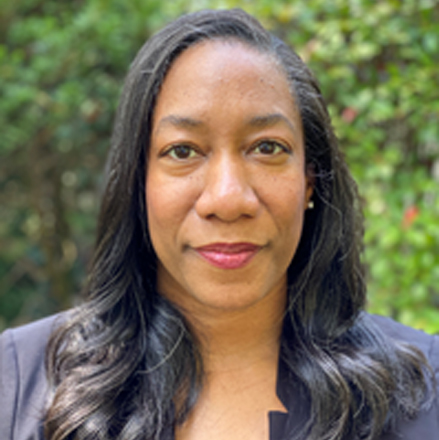
Adriane Randolph
Professor of Information Systems, Kennesaw State University
Biography: Dr. Adriane B. Randolph is the founder and executive director of the BrainLab and a tenured, Full Professor of Information Systems in the Michael J. Coles College of Business at Kennesaw State University. She is also President/CEO and co-founder of nürltec, a consulting firm engaged in biomarketing research to help organizations gain deeper insights about their customers and employees. Dr. Randolph earned a Ph.D. in Computer Information Systems from Georgia State University and a B.S. in Systems Engineering with Distinction from the University of Virginia. Her research of over eighteen years focuses on brain-computer interface systems which allow for non-muscularly controlled assistive technologies and reflect varying cognitive states. She has been featured as a speaker for multiple TEDx and Moxie events, as an Atlanta Business Chronicle “40 Under 40” Young Professional on the Rise, was invited to attend President Obama’s White House Frontiers Conference, and was invited to innovate as an original Google Glass Explorer. She has published over eighty-five peer-reviewed manuscripts, received federal and private grant funding, co-organizes an annual retreat on neuro-information systems held in Vienna, Austria, and pursued a patent for a brain-computer interface and associated framework.

KerryAnn O’Meara
Professor of Higher Education and Special Assistant to the President for Strategic Initiatives, University of Maryland
Biography: Dr. KerryAnn O’Meara is Professor of Higher Education and Immediate Past President of the Association for the Study of Higher Education (ASHE). KerryAnn’s research examines faculty careers and academic rewards systems with a particular focus on organizational practices that support and limit the full participation of women, minoritized faculty and engaged scholars. KerryAnn is an internationally recognized expert on diversity and inclusion in faculty affairs, and has completed longitudinal and randomized control trials on faculty retention and workload reform projects, showing positive results from evidence based interventions. Her work has been widely published and funded. She consults with universities on promotion and tenure policy reform, faculty development programs, and organizational practices that sustain equitable workloads. KerryAnn led the University of Maryland’s ADVANCE program for ten years (2010-2020) and served as Associate Dean of Faculty and Graduate Affairs in her college for three (2017-2020). She is PI of an NSF ADVANCE grant, the Faculty Workload and Rewards Project, which has tested evidence-based practices to improve equity in faculty workload. KerryAnn is a senior researcher with the UMD System AGEP PROMISE project, working alongside Dr. Damani White-Lewis to examine inclusive hiring in STEM fields. She is a sought after speaker, consultant and partner on reforms to make academe more inclusive.
Biography: Dr. Adams holds a doctorate in physics, bachelor of science in engineering physics, and a bachelor of education in mathematics and physics, from Queen’s University in Canada. In 1996, he joined the faculty at Montana State University as an assistant professor of physics education research where he co-founded the Conceptual Astronomy and Physics Education Research (CAPER) team. From 2001 to 2011, Adams also served as MSU’s Assistant Vice-Provost for Academic Affairs. In 2011, Adams joined Millersville University of Pennsylvania as Associate Provost for Academic Administration, and in January 2018, he joined Penn State as the Associate Vice President and Associate Dean for Undergraduate Education where he oversees Penn State Learning, the Office of Prior Learning Assessment, and the Office of General Education. He has primary responsibility for curriculum and leads efforts within Undergraduate Education to support non-advantaged students.

Biography: In the capacity of Associate Dean for Advising and Executive Director of the Division of Undergraduate Studies (DUS), Dr. Smith is responsible for overseeing one of the largest enrollment units for first- and second-year students at Penn State. This includes providing leadership for enhancing the delivery of academic advising to exploratory students and for representing DUS within the Administrative Council for Undergraduate Education, a collaborative council representing all colleges, enrollment units, and campuses at Penn State. Additionally, he holds a seat as a Senator in the University Faculty Senate, provides leadership on the implementation of a student success strategy, and is a member of Commission for Adult Learners. At Penn State, David’s primary focus has been to advance the quality of the undergraduate experience and to focus attention on institutional responsibilities for student success.

Sarah Rajtmajer
Assistant Professor of Information Sciences and Technology, Penn State
Biography: Dr. Rajtmajer is an assistant professor in the College of Information Sciences and Technology at Penn State University and core faculty at Penn State’s Rock Ethics Institute. Her work includes machine learning, network science, game theory and agent-based modeling of social phenomena. Before joining the Penn State faculty, Dr. Rajtmajer was a consultant to the Defense Advanced Research Projects Agency on scientific programs aimed at breakthrough technologies for national security, with specific focus on initiatives in big data analytics and computational social science. Prior to her work at DARPA, Dr. Rajtmajer was an Intelligence Community Postdoctoral Research Fellow at Penn State’s Applied Research Laboratory and a Postdoctoral Scholar in the Department of Mathematics at Penn State. Dr. Rajtmajer holds a PhD in Mathematics from the University of Zagreb, Croatia, and a BA in Mathematics and Music from Columbia University.
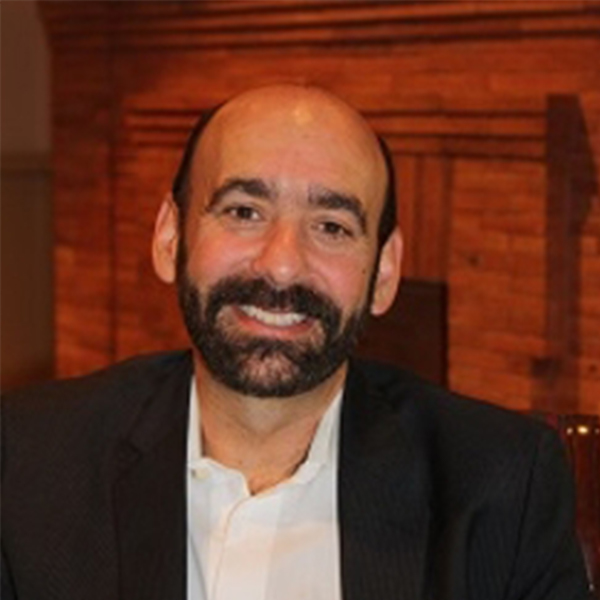
Richard Arum
Dean of the School of Education and Professor of Sociology and Education, University of California Irvine
Biography: Dr. Arum is dean of the School of Education and professor of education and (by courtesy) sociology, criminology, law and society at the University of California, Irvine. He recently served as senior fellow at the Bill & Melinda Gates Foundation from 2013-2015; and director of the Education Research Program at the Social Science Research Council from 2006-2013, where he oversaw the development of the Research Alliance for New York City Schools, a research consortium designed to conduct ongoing evaluation of the New York City public schools. He is author of Judging School Discipline: A Crisis of Moral Authority, coauthor of Aspiring Adults Adrift: Tentative Transitions of College Graduates, and Academically Adrift: Limited Learning on College Campuses, as well as coeditor of Improving Quality in American Higher Education: Learning Outcomes and Assessment for the 21st Century, Improving Learning Environments: School Discipline and Student Achievement in Comparative Perspectives, and Stratification in Higher Education: A Comparative Study. He received a Master of Education in Teaching and Curriculum from Harvard University, and a Ph.D. in Sociology from the University of California, Berkeley.
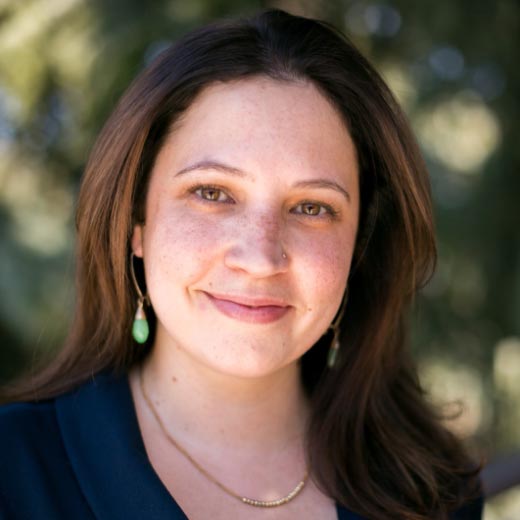
Mary Murphy
Professor of Psychological and Brain Sciences and Class of 1948 Herman B Wells Endowed Professor, Indiana University
Biography: Dr. Murphy’s research illuminates the structures and situational cues — like faculty and institutional mindset — that influence students’ academic motivation and achievement. She develops, implements, and evaluates the effects of structural and social psychological interventions on students’ motivation, persistence, and performance. She is co-founder of the College Transition Collaborative (CTC), a research-practice partnership aimed to increase student success through social psychological tools and interventions. She is the recipient of over $8 million in federal and foundation grants including a recent $2.2 million NSF CAREER award for her research on strategies to improve diversity in STEM; and in 2019, she was awarded the Presidential Early Career Award for Scientists and Engineers (PECASE)—the highest honor bestowed on early career scientists by the United States Government.

Timothy Renick
Professor of Religious Studies and Executive Director of the National Institute for Student Success, Georgia State University
Biography: Dr. Renick is the founding Executive Director of the National Institute for Student Success and Professor of Religious Studies at Georgia State University. At Georgia State, he has served as Chair of the Department of Religious Studies, Director of the Honors Program and Senior Vice President. Between 2008-2020, he directed the student success efforts of the university, overseeing a 62% improvement in graduation rates and the elimination of all achievement gaps based on students’ race, ethnicity or income level. For six consecutive years, Georgia State has graduated more African American students with bachelor’s degrees than any other not-for-profit college or university in the nation. Dr. Renick has testified on strategies for helping university students succeed before the U.S. Senate and has twice been invited to speak at the White House. His work has been covered by the New York Times, the Wall Street Journal, Time, and CNN and cited by former President Barack Obama. He was named one of the Most Innovative People in Higher Education by Washington Monthly, was the recipient of the Award for National Leadership in Student Success Innovation and was awarded the 2018 McGraw Prize in Higher Education. He has served as principal investigator for more than $30 million in research grants focused on promoting better and more equitable outcomes for college students. A summa cum laude graduate of Dartmouth College, Dr. Renick holds his M.A. and Ph.D. in Religion from Princeton University.
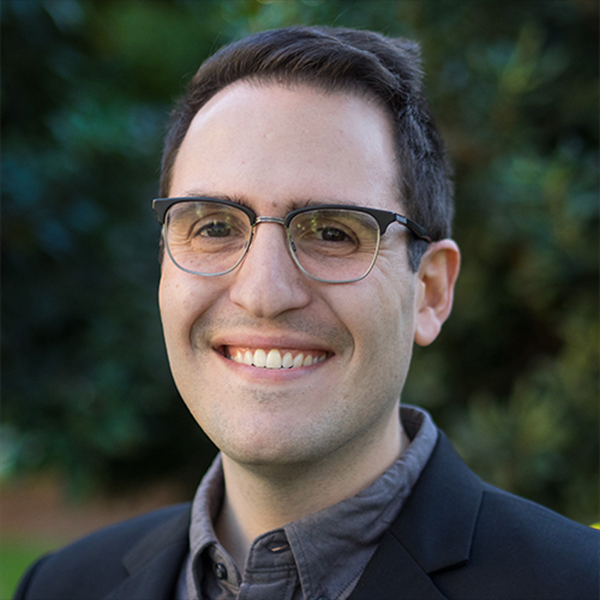
Daniel Susser
Assistant Professor of Information Sciences and Technology, Penn State
Biography: A philosopher by training, Dr. Susser works at the intersection of technology, ethics, and policy. His research aims to highlight normative issues in the design, development, and use of digital technologies, and to clarify conceptual issues that stand in the way of addressing them through law and other forms of governance. He is an assistant professor in the College of Information Sciences & Technology and a research associate and core faculty member in the Rock Ethics Institute at Penn State.
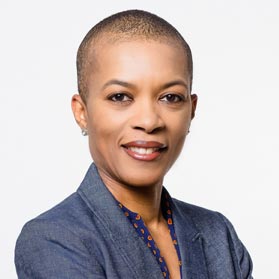
Fay Cobb Payton
Professor of Information Technology and Business Analytics, North Carolina State University
Biography: Dr. Fay Cobb Payton is a Full Professor (with Tenure) of Information Technology/Analytics at North Carolina State University and was named a University Faculty Scholar for her leadership in turning research into solutions to society’s most pressing issues. She is currently on assignment as a Program Director at the National Science Foundation. Dr. Payton’s research interests include AI fairness/bias, design and impacts on lived experiences; healthcare disparities; data analytics, social media use among underserved populations; racial, gender and ethnic identities in online communities; tech inclusion, innovation & entrepreneurship. She has published over 100 peer-reviewed journal articles, conference publications and book chapters. Her research has been published and/or is forthcoming in the Journal of Women and Minorities in Science and Engineering, Communications of the ACM, INROADS, European Journal of Information Systems, Information Technology & People, IIE Transactions on Healthcare Systems Engineering, Information Systems Journal, Journal of the Association for Information Science and Technology, Health Care Management Science, Telemedicine and eHealth, just to name a few. She is often the speaker, consultant and/or panelist for corporate career development and leadership programs in corporate and academic initiatives. She has appeared in or cited by Essence Magazine, IEEE Spectrum, Insider Higher Ed, CBS Radio Network, Sunrise America, Financial Review and others to discuss tech inclusion.

Ashley Patterson
Assistant Professor of Education, Penn State
Biography: Trained in Special and Elementary Education at Boston University and Reading Specialization at Hood College, she completed her PhD work at The Ohio State University in Multicultural and Equity Studies in Education where she also earned an MA in Quantitative Research, Evaluation and Measurement. Dr. Patterson’s work in the educational field began as an elementary level inclusive special educator. She is committed to preparing educators who take up a critical lens to working with children and best serving their needs while seeking ways to deconstruct inequities woven into the US’s existing public school system and structure. To this end, Dr. Patterson serves as a co-coordinator for the newly (2020) established Social Justice in Education minor available to students across the University. Broadly, Dr. Patterson’s research interests consider intersections between identity and education, considering the dialogic relationship that exists as the ways we think about ourselves impact our educational experiences while our educational experiences impact the ways we think about ourselves. Employing an intersectional approach to considering identity, Dr. Patterson’s research examines race conjointly with a host of other contextually important and influential identity markers.

